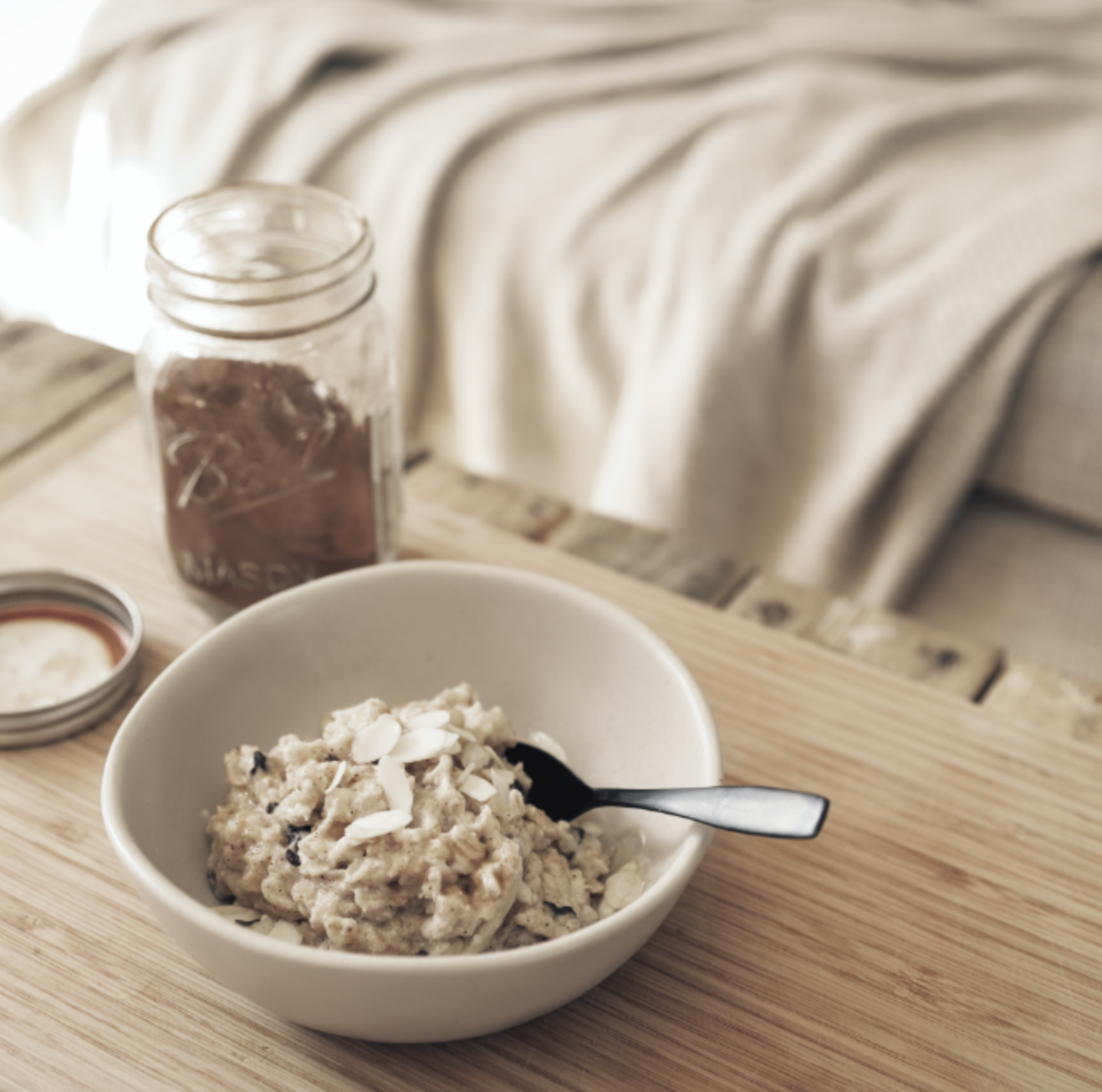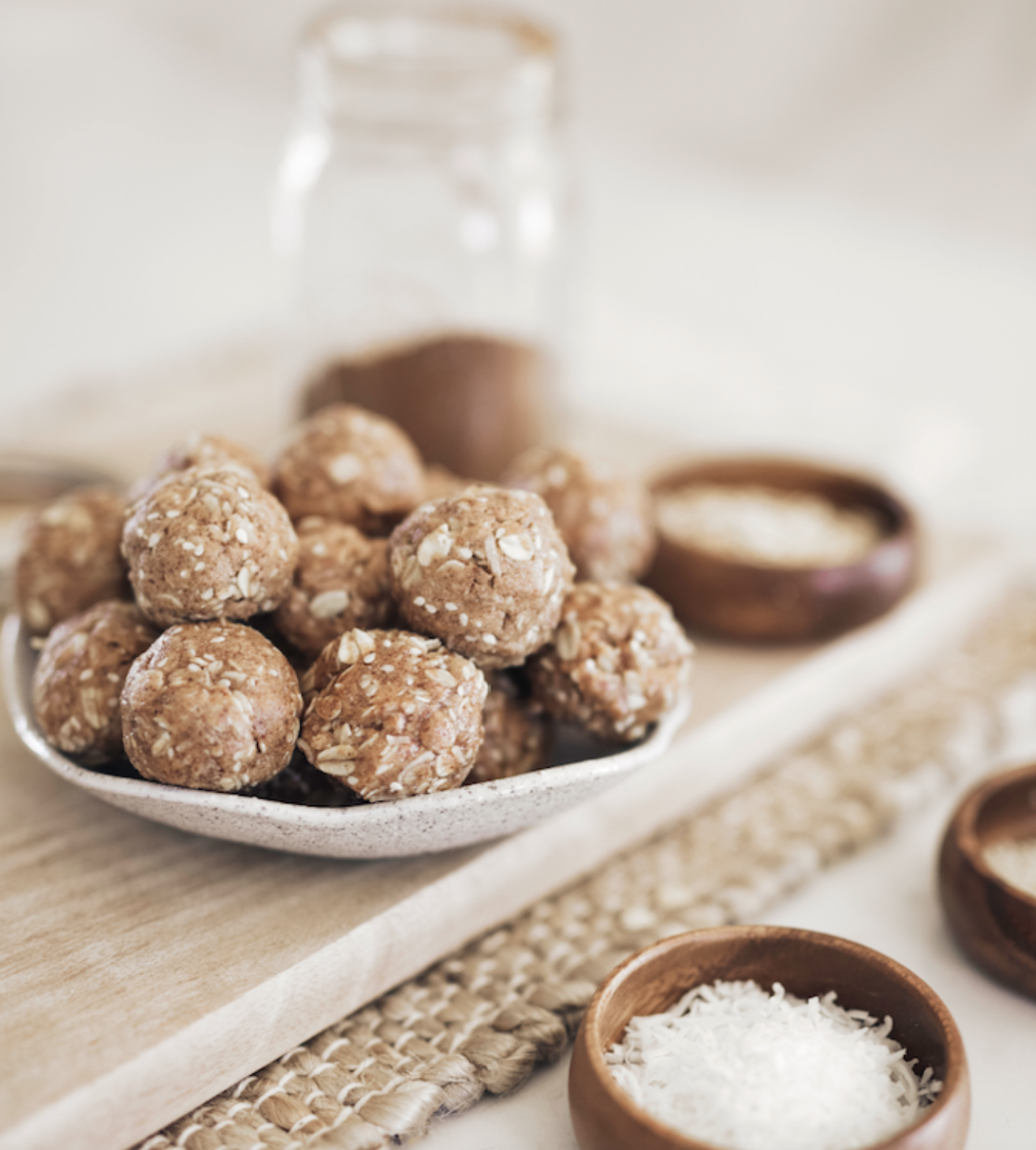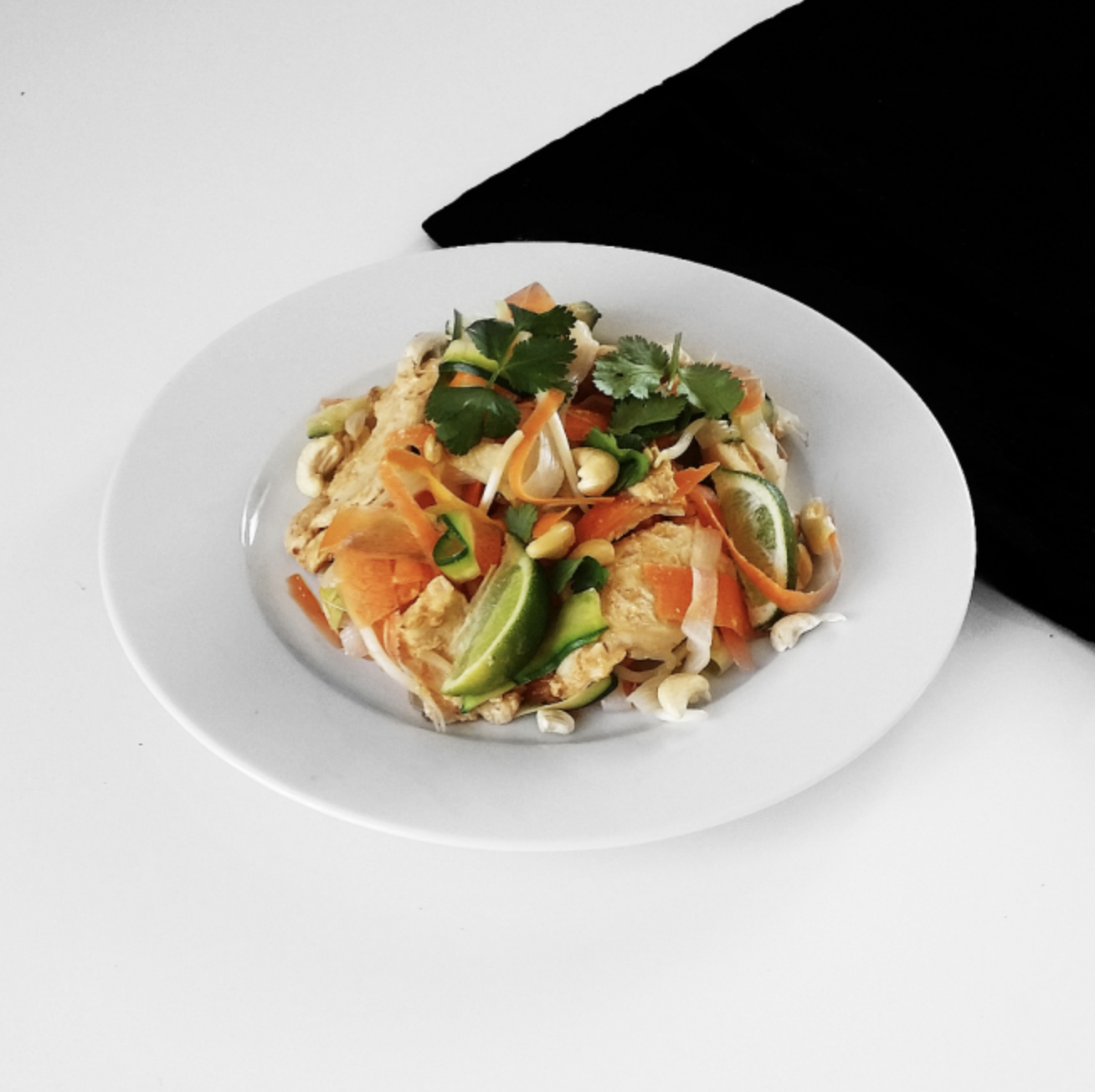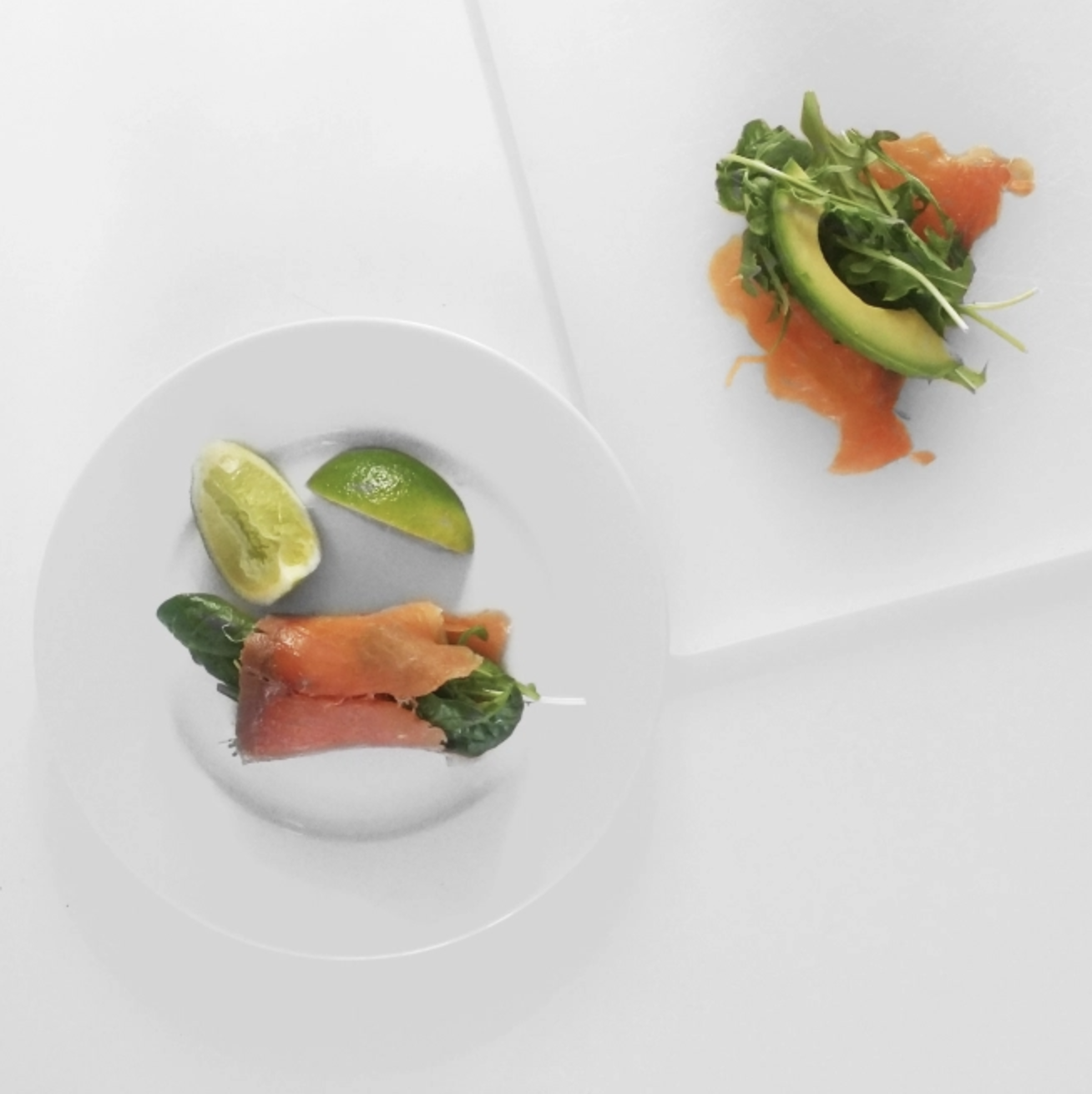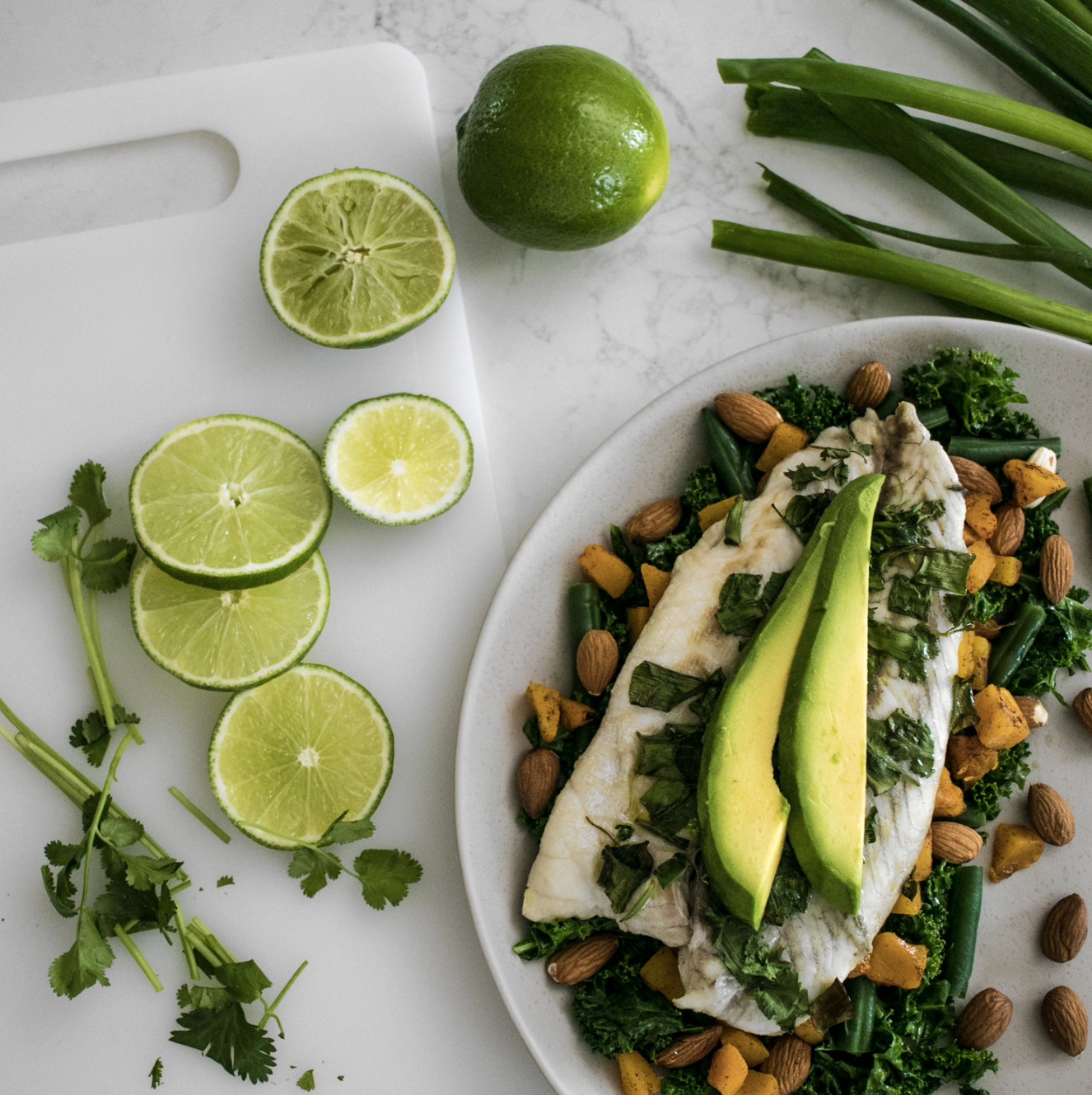Heal Your PCOS Naturally With These 9 Tips
Ah, PCOS, my old frienemy… Three/four years ago I was downright miserable. I was fighting daily with the following symptoms:
Inflamed, painful acne all across my cheeks and jawline
Irregular period (3-4 times per year max)
Slightly elevated androgens
Follicular growths on my ovaries
Irritability and mood instability
Unexplained weight gain
Fatigue
Gluten intolerance and verging on dairy intolerance
Bloating (and I mean like, every.. damn.. night)
Headaches and migraines
Flash forward to now and the only symptom I’m dealing with, if you could even call it that, is my body fighting back against me if I’m not diligent with my nutrition haha.
I so often have women contact me who call themselves a ‘victim of PCOS’, or say they are ‘suffering with PCOS’, firstly, let’s change that language. Your language shapes your thinking. Take back that control. With PCOS we can (with some effort and consistency) regain that control through nutrition and lifestyle changes. It all comes down to how badly you want something, and what changes you’re willing to make to get there.
Keep reading to find out the lifestyle changes that I have made, and that I recommend for my clients to make, to regain control over their PCOS, their bodies, and their health.
Are you struggling with these symptoms?
Download my PCOS Action Plan here - it’s free!
✔ Get an easy meal idea sheet that you can draw ideas from to help reverse PCOS symptoms, lose fat, and start to feel in control of your own body again.
✔ Learn the best foods to always have on hand in your pantry to get the most out of your nutrition.
✔ Discover what kind of PCOS you have and how this impacts what approach you should use treat your symptoms.
✔ Stop feeling out of control with your body and learn how to manage your PCOS, for good!
Cut the caffeine
The first thing I’m going to tell you, which some of you may hate.. is to limit your caffeine consumption. The reason for this is that excess caffeine can cause havoc in your endocrine system. This becomes exacerbated by other external factors, such as lifestyle stress, hormone imbalances, or any physiological changes your body is already going through.
Excess caffeine consumption can also reduce your body’s sensitivity to the hormone insulin. Confirmed in a study from 2007, the daily consumption of caffeine reduced insulin sensitivity and the effect remains present for a week after the caffeine dose.
What is your endocrine system?
Your endocrine system is a collection of glands that help produce hormone that help produce hormones, regulate your metabolism, and mood.
Limit alcohol consumption
Alcohol is another thing which can disrupt your endocrine system. Alcohol consumption can also delay the production of Human Growth Hormone (HGH). HGH helps metabolise sugars. If you have PCOS it’s very important that your body can metabolise sugars, as we are already predisposed to insulin resistance.
If you’re drinking frequently you may inhibit your body’s ability to efficiently process sugars.
Alcohol hits you with about 7 calories per gram, so each drink is roughly 100-150 calories, and that's not including any mixers - that's straight alcohol.
After the consumption of alcohol the production of human growth hormone (HGH) in the body is slowed by up to 70% (study conducted by Pennsylvania State University College of Medicine). HGH is responsible for regulating body composition, muscle growth, and the metabolism of sugar and fat.
Alcohol can impair protein synthesis, which is the process that helps build new muscle.
For a few days after drinking alcohol your body is focusing more of it's attention on removing those toxins you've put into it, as a side-effect from that if you do exercise during this time your muscle soreness will be much more noticeable.
Exercise, but not too much
Exercise is fantastic for your PCOS, but what kind of how often will depend on the rest of your lifestyle, your nutrition habits, and any pre-existing burnout or thyroid struggles.
You may wish to start light with walking, swimming, pilates and work your way up to see what you can handle. It’s also important to note that recovery is an essential element, and one that is all too easy to neglect. You can only train as well as you recover.
If you’re new to training, or want to switch your home workouts up to something more efficient, grab yourself a copy of my 8 Week Transformation Challenge.
Consume quality calories
Our diet is such a big factor when it comes to hormonal balance. What we eat influences our hormone production. Your body won’t be as efficient at balancing your hormones when it cannot make or isn’t receiving the basic building blocks it requires. Make sure you’re eating adequate protein, slow releasing carbs (including nutrient dense vegetables), and beneficial fats. Eat small, frequent, balanced meals to keep blood sugar stable.
Swap out the simple sugars and increase your fibre intake.
Here are some PCOS-friendly meal ideas to try! (click the meal to go to the recipe)
Start a food diary
If you’re not comfortable counting calories and macros, you don’t need to. Unless you have very specific body composition / fitness goals in mind this may not be necessary for you. However, I think it’s very helpful to start a food diary, I have a pre-printed journal which you can use to track both your food and your training.
Tracking what you’re eating will make you more mindful of your choices and eating history – this will also help you decide what changes to make. And in the future, if you decide to see a dietician or another health professional to help you with your diet, having a historical food diary will be very helpful for them!
Be consistent with your nutrition
This is one of the biggest factors that causes people to fail! You’re not going to see results in 4 days, potentially not even 2 weeks, or even 2 months. If you think about the fact that what you’re eating changes your hormones, your mood, and the composition of your body – it’s mind blowing! And this is a process that takes T I M E.
Look for foods you enjoy (that are also goal-friendly) and a cooking/eating pattern that fits into your lifestyle. If it seems like a chore, if you hate the food, or if you’re dreading every moment, I promise you it’s not going to work for you long term.
Pre and Probiotics
Gut health and PCOS are closely linked, click here to read my post about Gut Microbiome. One symptom a lot of girls come to me with is signs of leaky gut (read my leaky gut post here), which is where their digestive system is unable to absorb nutrients from their food. Many also start to show signs of gluten or dairy sensitivity, or both.
Women with PCOS tend to experience chronic inflammation, which in turn impacts on insulin resistance and eventually weight gain. Our intestinal flora are the gatekeepers that mediate this inflammatory process.
Changes in gut flora can result in decreased body fat, weight gain, and inflammation.
Fermented foods are also a good source of probiotics, read my fermented foods here.
Probiotic supplements can be extremely helpful for women with PCOS. In fact, a clinical trial conducted in 2015 showed that probiotic supplements helped lower blood sugars as well as improve insulin sensitivity in PCOS patients.
De-stress
As we’re talking about lifestyle factors, this one is important. We’re not living in a time where we’re going to be chased by a lion, but our bodies haven’t learnt how to differentiate between emotional stress and physical stress.
Stress can cause menstrual disfunction and hormone imbalance.
The pituitary gland in your brain releases a hormone called ACTH (short for adrenocorticotropic hormone, but let’s not make me spell that out again) in response to both physical and emotional stress. ACTH stimulates the adrenal glands to produce a cocktail or other hormones, such as cortisol, noradrenaline, and adrenaline, as well as androgen hormones, including DHEA, DHEA-S. The androgen hormones can contribute to elevated androgen hormones typically seen in those with PCOS.
When ACTH and cortisol are raised in response to stress, cortisol down-regulates ACTH production creating a negative feedback loop. As I mentioned, ACTH stimulates the production of DHEA/DHEA-S to help protect the brain from too much cortisol, but unfortunately these androgenic hormones do not affect ACTH, and therefore our bodies cannot create a feedback loop to effectively ‘switch off’ androgen secretion.
THINGS I LIKE TO ADD INTO MY DAY
1 MINUTE BREATHING USING THE ‘BREATHE APP’ ON MY WATCH
3-5 MIN MEDITATION WITH HEADSPACE BEFORE BED
Sleep well
Women who have PCOS are already more predisposed to have issues with their sleep, such as sleep apnea, insomnia, etc. Sleep is a crucial part of overall health, and recovery.
Adequate sleep is essential for blood sugar regulation and keeping your hormonal profile in check, and regular fluctuations in blood sugar levels can make your PCOS symptoms even worse over time. Lack of sleep has also been shown to decrease the body’s ability to lose fat, alter glucose metabolism, and may lead to increased body fat.
On top of waking up feeling irritable and groggy, a lack of sleep can alter your appetite the next day. Remember how I said it can disrupt your hormone levels? Feeling hungry and full are feelings that are flagged by two hormones, ghrelin, and leptin, respectively. So guess who is probably going to mindlessly over-consume after a bad sleep?
Try incorporating some of these lifestyle changes. For the best effect don’t work on more than two at any one time. I know the process might feel slower, but what’s better? Banging in head-on and trying to tackle it all at once only to fall off track in 4-5 weeks time, or taking your time to make sustainable changes and find solutions that work for your lifestyle, so that after a few months you have all these new habits locked down and not one of them feels like a chore? I know which one I’d choose…





